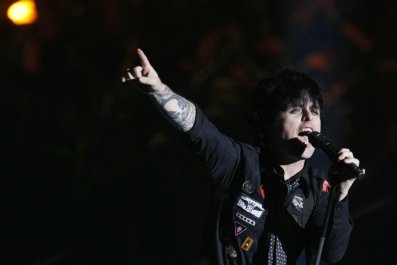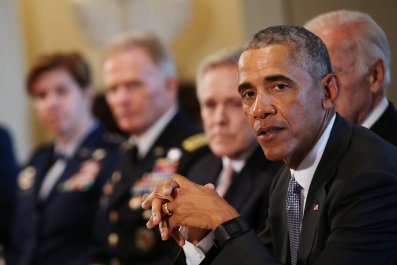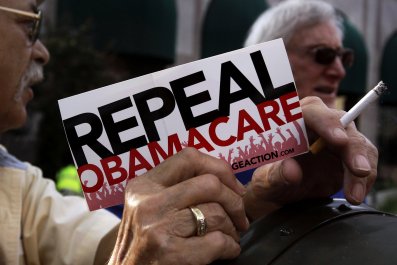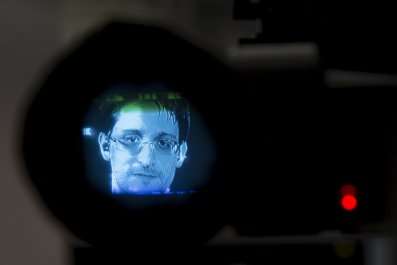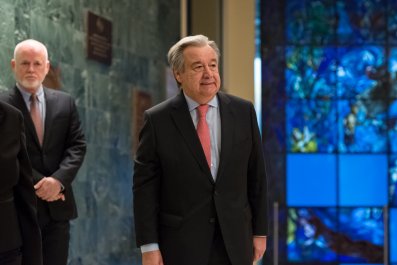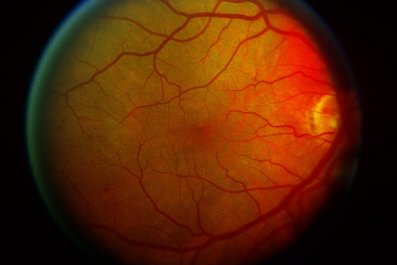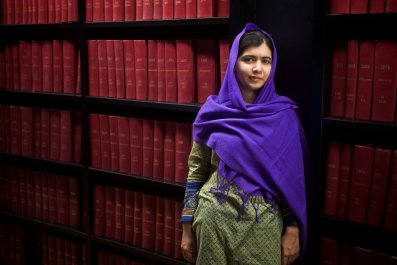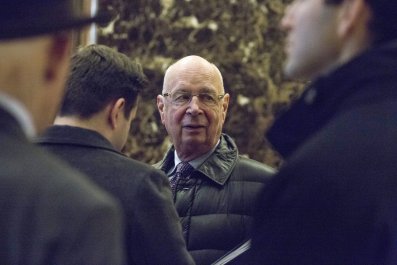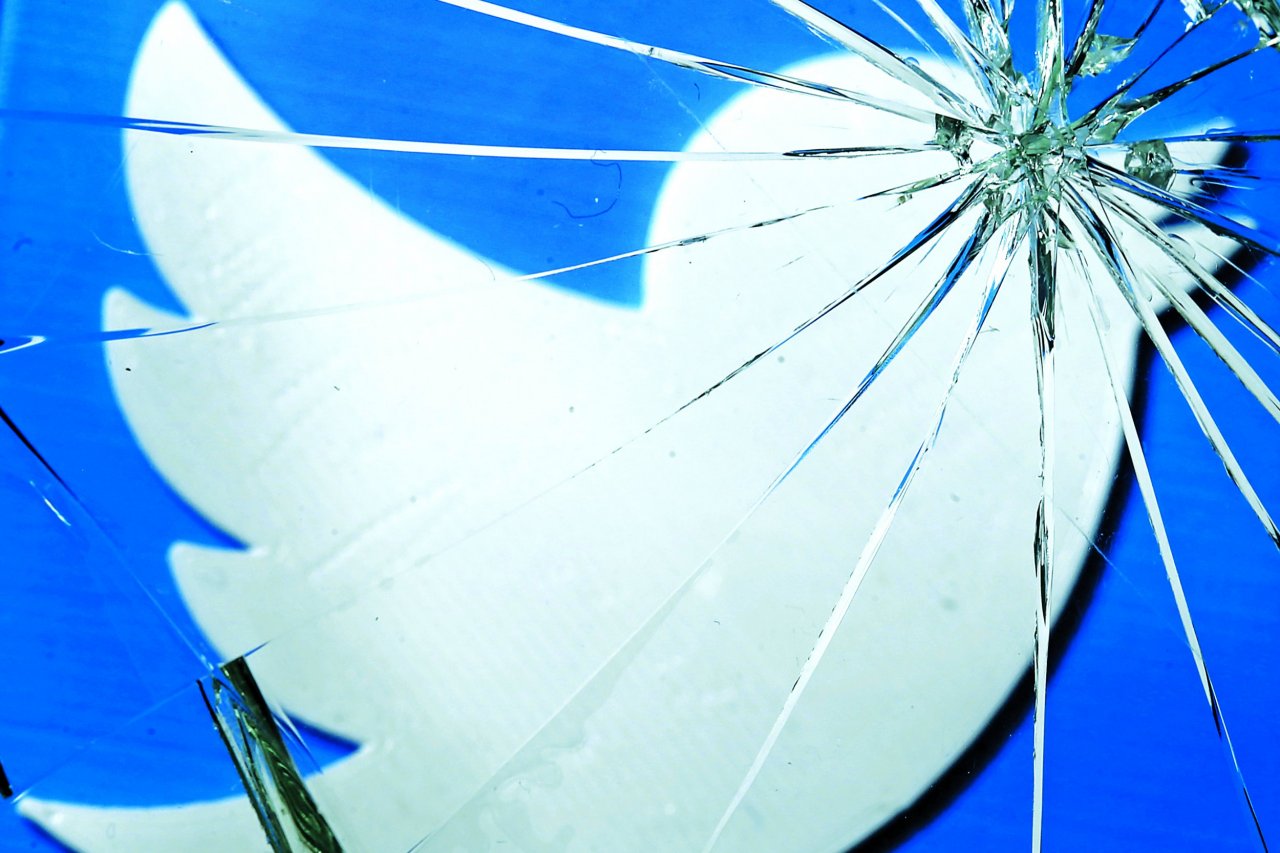
Twitter falls into that category of something we once thought was good for us but turned out to be toxic, like cigarettes or asbestos. The site is notorious as a haven for bullying and sociopathic behavior. It enables terrorists and hate groups. It enables Kanye West. Despite pledges to clean up the site, Twitter's leadership has done next to nothing.
Twitter has, of course, also enabled Donald Trump. Half the voters in the U.S.—or, well, about 3 million less than half—think this is splendid. The other half, and just about the entire rest of the planet, believe there is zero upside to a free-form tweeting President Trump. The biggest potential downside: He starts a nuclear war in 140 characters or less.
Trump alone is enough reason to throw the master switch at Twitter headquarters and shut off the whole thing. Imagine what Trump would be like without his Twitter. He doesn't use email or a computer. He'll never figure out Snapchat. He'd be stripped of his weapon of choice for menacing his victims, like the Abominable Snowman after Hermey the Elf pulls its teeth.
Related: Why Facebook can't fix fake news
By the way, Trump is the 73rd most-followed tweeter on Twitter. Katy Perry tops the list, with about five times more followers than Trump. Barack Obama is fourth. Trump has fewer followers than Britney Spears, Lil Wayne, Brazilian soccer star Neymar and barely relevant rocker Avril Lavigne. The top 100 list says a whole lot about how vacuous Twitter has become.
There's no longer much about Twitter that we can't live without, or can't replace with Facebook or Snapchat (which now has more active users than Twitter). The best thing you might say about Twitter is that it's become the new micro press release—a way for the famous and powerful to promote, with as little effort as possible, their next project, product or random thought. For the media, those tweets are as irresistible as a bowl of potato chips set out on the coffee table. Now we've eaten too many and hate ourselves for it.
One other benefit of shuttering Twitter: It might accelerate the decline of using the word hashtag in conversation. Those who do will out themselves as a relic, like someone who says groovy or calls women dames.
There's not a lot to recommend Twitter as a business either. Its stock price has fallen to less than half what it was on the day it went public, in November 2013. Top executives come and go like a series of relief pitchers trying to stop a blowout baseball game. Its number of active users grew a tiny bit toward the end of 2016 but has been mostly flat since the start of 2015. Over the summer, a series of potential buyers—including Google, Salesforce and Disney—did their due diligence on Twitter and apparently decided it was some combination of too dangerous and too flawed to own.
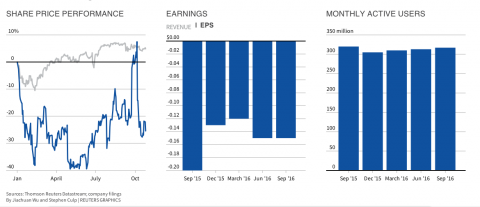
From its founding, Twitter never had a purpose. In an interview back when hardly anybody outside Silicon Valley had even heard of Twitter, co-founder Evan Williams told me he was still trying to figure out what it was by watching the way it was being used. Current CEO Jack Dorsey is doing the same today. At the end of the year, he posted this: "What's the most important thing you want to see Twitter improve or create in 2017?" That's not exactly visionary leadership, not compared with what we've seen from Mark Zuckerberg at Facebook or Larry Page at Google. Twitter has always been more adrift than not—basically an accident that caught on.
You might say Twitter has done a lot of good internationally, helping protesters communicate and gather in authoritarian countries. But most of those "Twitter revolutions" have not had lasting impact. The huge protests in Egypt that led to the deposing of Hosni Mubarak were mostly organized on Facebook by Google employee Wael Ghonim, as he details in his book Revolution 2.0. The world's oppressed now have a lot of online tools to help them get around government restrictions and talk to each other. They don't need Twitter.
The company, based in San Francisco, employs a little less than 4,000 people. It would suck to put them out of their jobs. Then again, IBM CEO Ginni Rometty recently noted that there are 500,000 unfilled tech jobs in the U.S. Most of the axed Twitteronians would do OK.
If the Chinese government gets steamed enough at Trump about Taiwan, it could exact sweet revenge by ponying up the cash to buy Twitter and promptly close it. But it's questionable whether that would be in China's best interest. If China's leaders want to destabilize the U.S., maybe their better plan would be to buy Twitter to make sure the site stays operational so Trump and Kanye can keep tweeting.
There must be other options. Who might be rich enough and motivated enough to take out Twitter? George Soros? A Saudi prince? The pope? Early in 2016, Rupert Murdoch's News Corp. denied rumors that it was interested in buying Twitter. Maybe we can get Murdoch to look at it again. And then he can do for Twitter what he did for MySpace after he bought it. (A hint for millennials about the probable outcome: Do you even remember MySpace?)
And yet Twitter might prove harder to get rid of than raccoons at a campsite. The company is still worth nearly $12 billion. It still has around 300 million monthly users. And it still has Trump, so if anyone tried to shutter it, he'd probably step in and classify Twitter as essential to our national security and install Ivanka to run it.




